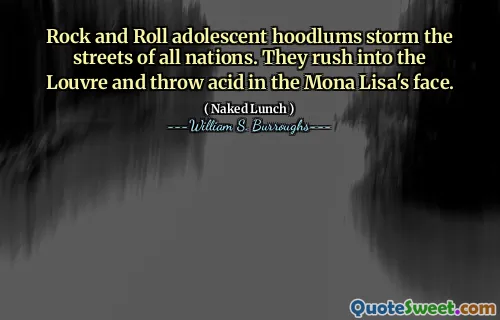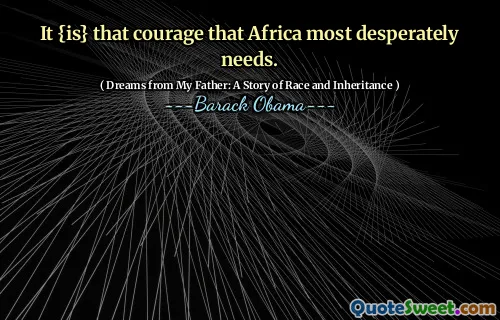
It {is} that courage that Africa most desperately needs.
In his book "Dreams from My Father," Barack Obama reflects on the importance of courage, particularly in the context of Africa's challenges. He argues that courage is essential for confronting the obstacles that the continent faces, such as social and political issues, and that this quality can inspire hope and change. By highlighting the significance of bravery, Obama emphasizes that it is a vital trait necessary for progress and transformation.
Obama’s message resonates deeply, as he believes that the people of Africa can benefit greatly from embracing courage in their pursuits for justice and equality. Through courage, individuals and communities can stand up against oppression, champions of change can emerge, and a brighter future can be envisioned for the continent. In a world where risks are prevalent, courage stands out as a pivotal force that can lead to meaningful advancements in society.




